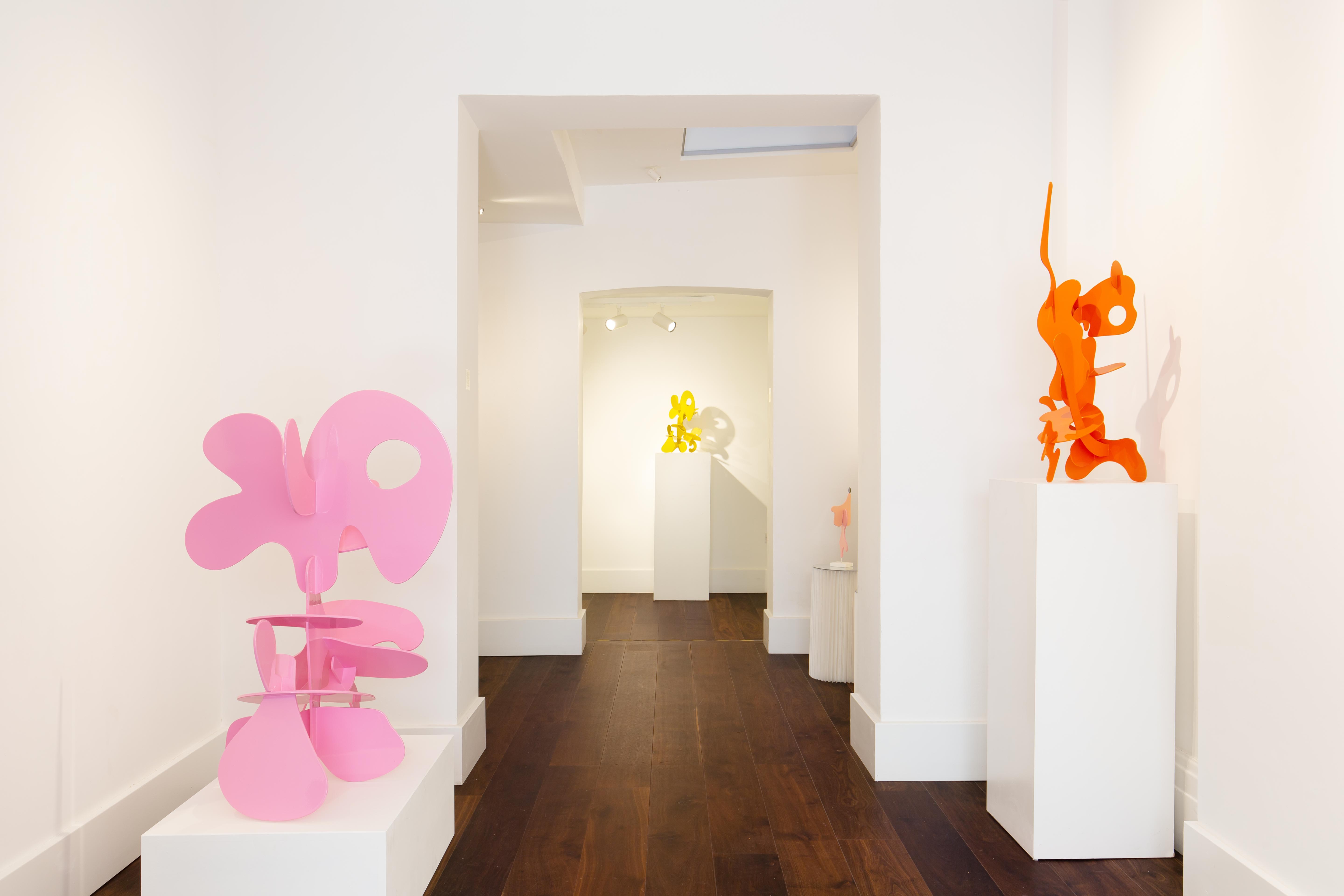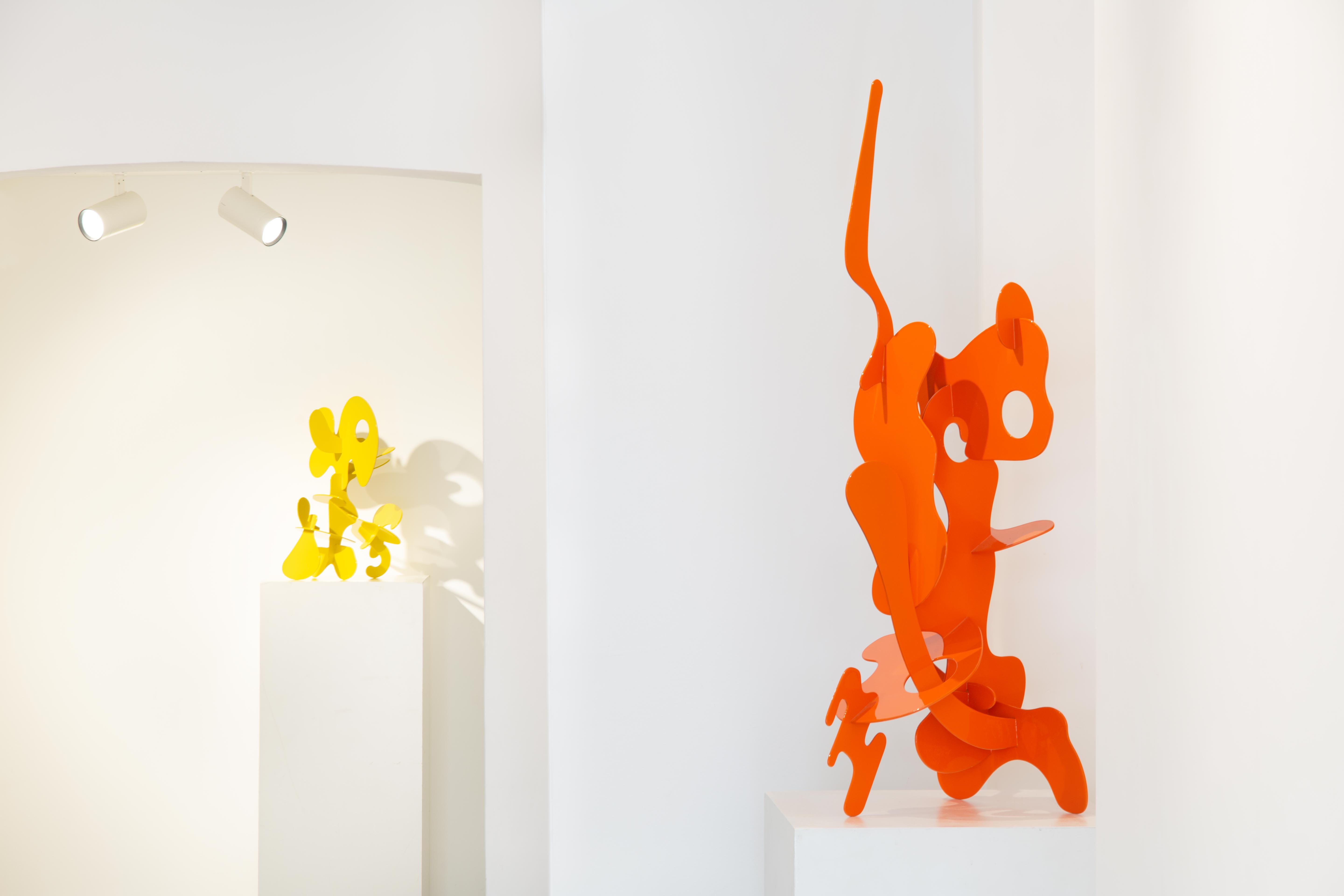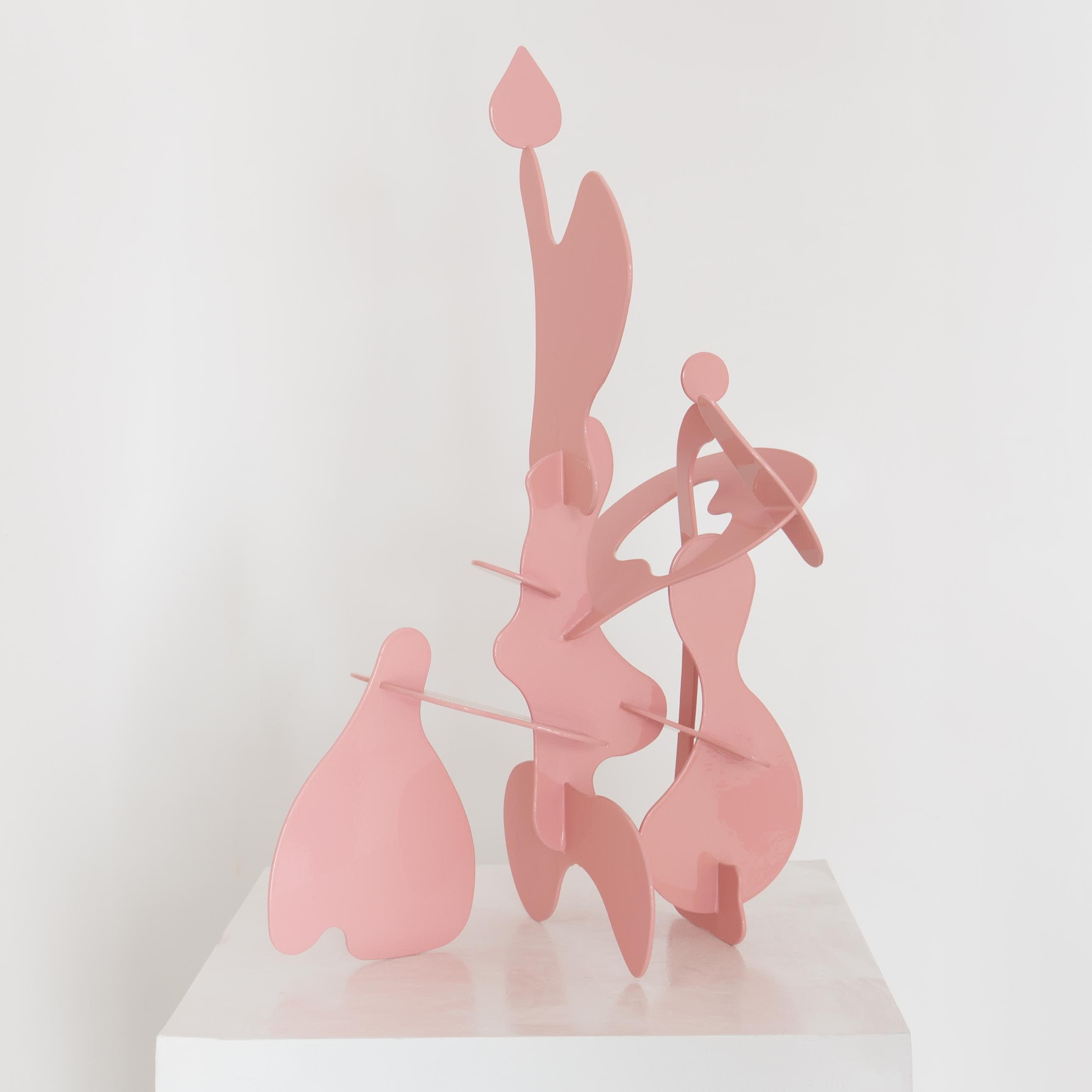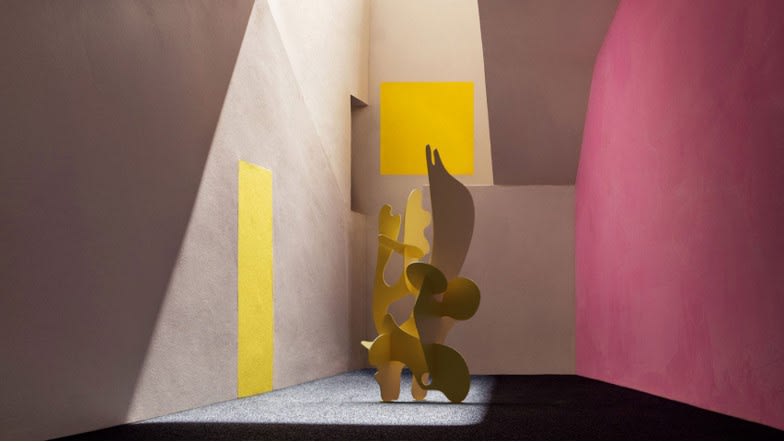Misha Milovanovich belongs to that ever-growing generation of postmodern artists who have spent the last years of the 20th century and first years of the 21st century deepening and transforming the analytical and reductivist movements of avant-garde art, as well as the more advanced artistic trends of the sixties and seventies; reinvigorating them with a keen and daring sense of storytelling, process, personal identity, spirituality and, in short, infusing them with a pathos that powerfully awakens the viewer's attention through contagious empathy.
Her art does not fit into the existing categories of post-minimalism, conceptual, process, or performance art. This is largely due to her unwavering loyalty to painting, which simply doesn't know much about fashions but does know about essential and timeless subjects. Her premeditated and irrational disdain for most of the distinctions established by the artistic tradition, such as between abstraction and representation, two-dimensionality and three-dimensionality, formalism and conceptualism, or between major and minor art, encouraged her, among other reasons, to include sculptural elements of wood in her paintings. From there, her paintings grew to become sculptures, although perhaps it would be more accurate to speak about artistic identities that move between two and three dimensions.

Misha Milovanovich, The Shape of Colour, Dellasposa Gallery, 2020 [installation view] © Misha Milovanovich
The specific way in which Misha associates and connects with the artistic trends of her immediate past allows her to be part of a small group of painters, which includes, among others, the giants Frank Stella and Elizabeth Murray, who before her rebuilt the medium of painting practically starting from nowhere. They took it apart and tried to put it back together. These artists, like Misha does, add multiplicity and complexity, expanding their variables and references, demonstrating their infinite evolutionary capacity. Today we are already perfectly aware that this faculty of painting is mainly due to the fact that the sources from which it drinks, both traditionally artistic and those that are not, are almost infinite.

Misha Milovanovich, The Shape of Colour, Dellasposa Gallery, 2020 [installation view] © Misha Milovanovich
Indeed, the most easily perceptible references in Misha's work range from fragmented cubism to biomorphic surrealism or proto-minimalism, passing through the dynamic visual humour of Walt Disney. Apparently, these are references that are not surprisingly new until the viewer ends up intuiting that our artist has infused her sculptures with a powerful shamanic or even pantheistic vigour of healing intentions. Indeed, they are shapes inspired by parameters present in the natural world, which provide works with openness and structural security. On the other hand, the colours chosen in combination with the shapes work like a solo (soul) singer, provoking a strong emotional response from the choir (spectators).

Misha Milovanovich, Plexippus, 2020. Unique powder-coated 3mm mild steel.
60 H x 40 W x 26 D cm. © Misha Milovanovich
From here emanates a deeply human therapeutic joy whose evocation becomes as authentic as necessary for an artist whose childhood has not been without trauma in her country of origin. Traumas that more or less directly have been accompanying us in all our societies with increasing frequency and through a growing number of different channels. Dystopian societies have ended up distancing us from the deep truth that resides within our conscience, before others and before ourselves. These sculptures created by Misha connect us again, through their implicit narratives and the dreams that originated them, with our most essential outer and inner world. They function as trees whose roots go deep and at the same time point to the sky, a metaphor that in the time that we have lived gives us a precious contribution to the history of contemporary art.
Christian Domínguez is an independent art curator and advisor living in Madrid.
